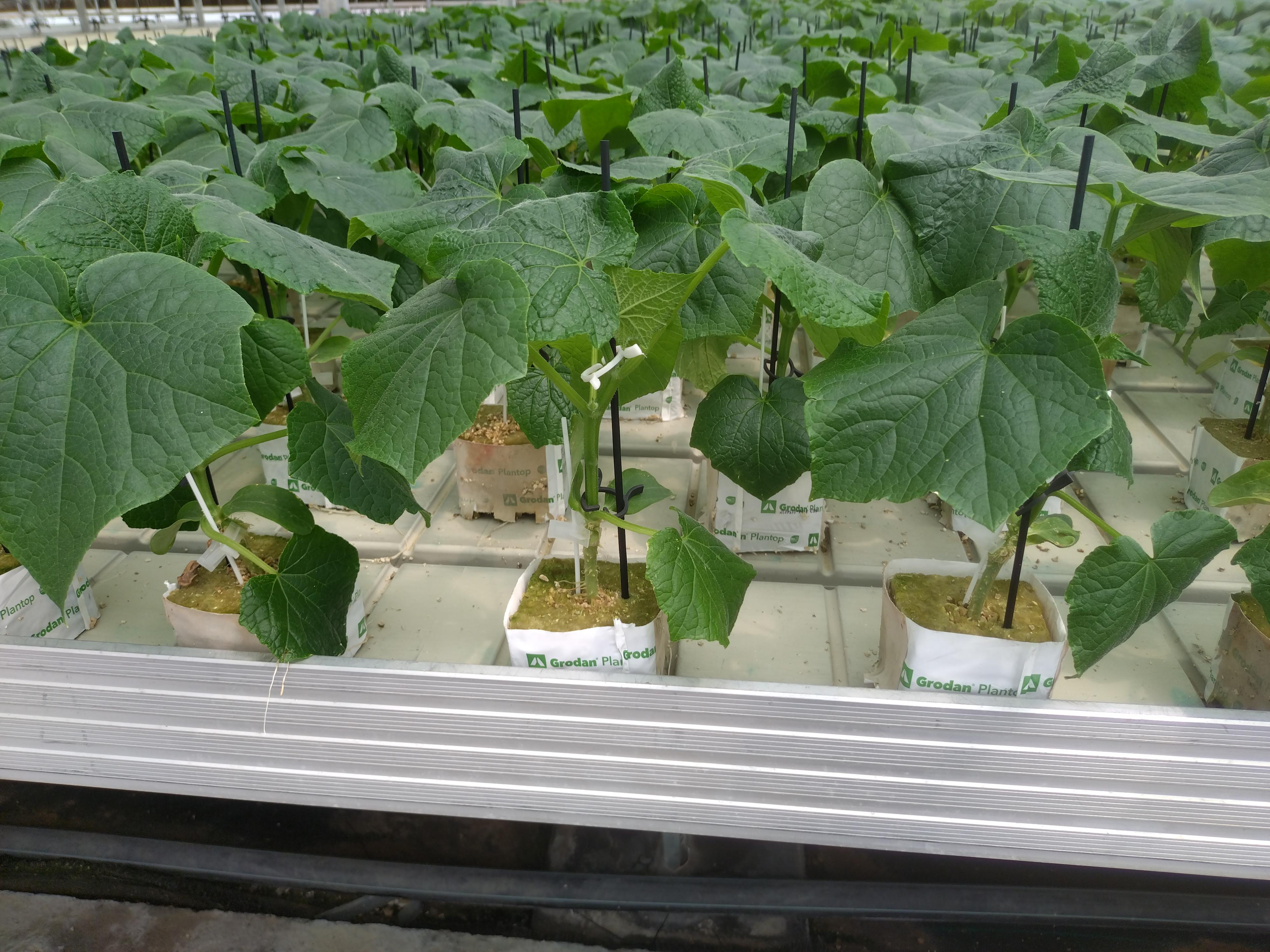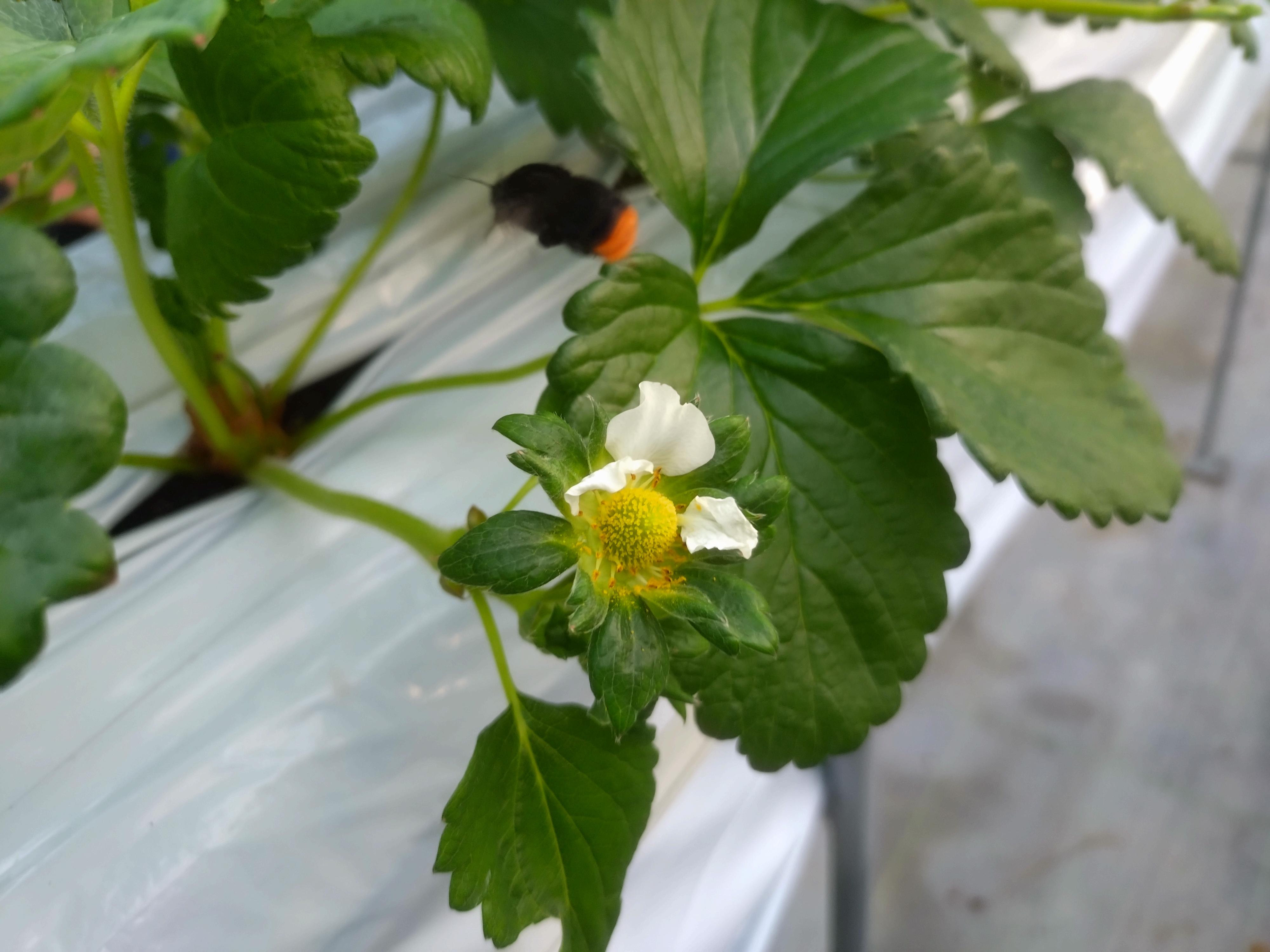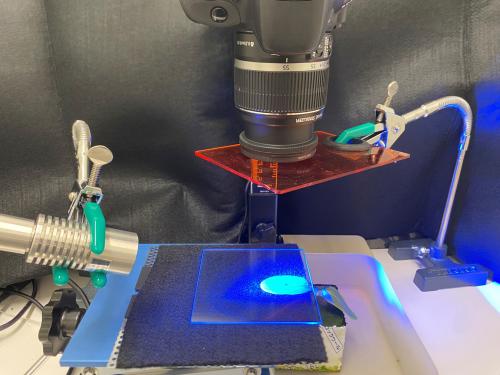研究テーマについて
大山研究室では、植物生産にかかわる一連の研究により「食料生産におけるSDGsの達成」を目指しています。
研究テーマ1 接ぎ木の水分バランスと活着
研究テーマ2 訪花昆虫の行動把握
研究テーマ3 植物ウイルスベクターを効率的に増殖するための環境条件の把握
接ぎ木は、遺伝的に優秀な穂木と、土壌伝染性病害に強い台木とを接合させて一つの植物体を作り出す技術であり、農園芸分野で広く利用されています。接ぎ木には、病害抵抗性の獲得に加えて、耐塩性や耐暑性などの環境ストレス耐性の向上、養水分吸収の安定化、樹勢や収量の改善といった様々な効果が期待できます。一方、接ぎ木直後の水分バランスや活着は環境条件に大きく左右され、管理が不適切な場合にはしおれ(萎凋)や活着不良を招くことがあります。そのために、接ぎ木苗の生理応答を定量的に把握し、活着を促進する環境条件を明らかにすることが重要となります。私たちの研究室では、様々な環境条件下で接ぎ木の水分バランス(蒸散や吸水)とともに、活着の推移を解剖学的に調べています。

Grafting is widely used in horticulture and agriculture that creates a single plant by joining a genetically superior scion with a rootstock resistant to soil-borne diseases. In addition to enhancing disease resistance, grafting is expected to provide benefits, including improved tolerance to environmental stresses such as salinity and heat, more stable water and nutrient uptake, and increased vigor and yield. However, water balance and graft establishment immediately after grafting are strongly influenced by environmental conditions, and inadequate management can lead to wilting and poor graft success. Therefore, it is important to quantitatively assess the physiological responses of grafted seedlings and to identify environmental conditions that promote successful establishment. In our laboratory, we investigate water balance grafted plants (i.e., transpiration and water uptake) under various environmental conditions as well as the progression of graft establishment anatomically.
農園芸分野では、受粉の安定化とともに、収穫物の収量・品質の向上のために、ミツバチやマルハナバチなどの訪花昆虫が幅広く利用されています。近年は露地に加えて施設園芸でもその重要性が高まっています。しかし、気候変動や病害虫などの影響により、訪花昆虫の個体数減少が問題となっています。必要最小限の訪花昆虫頭数で受粉効果を最大化するには、訪花昆虫の行動を把握し、適切に管理することが不可欠です。そこで私たちの研究室では、人工知能(AI)を用いた画像解析により、訪花昆虫の行動を定量的に把握することを試みています。

In horticulture and agriculture, pollinators such as honeybees and bumblebees are widely used to stabilize pollination and improve crop yield and quality. In recent years, pollinators have become more important not only in open-field production but also in greenhouses. However, declines in their populations due to climate change and the spread of pests and diseases have become a concern. To maximize pollination efficiency with the minimum pollinators, it is essential to understand their behavior and manage them appropriately. Therefore, our laboratory is attempting to quantitatively assess pollinators’ behavior using image analysis using artificial intelligence (AI).
テーマ3 植物ウイルスベクターを効率的に増殖するための環境条件の把握
近年、感染症対策のためのワクチン大量生産技術の確立に注目が集まっています。本研究では、その中で、ワクチンを生産するための手段として、有用たんぱく質を生産することのできるウイルスを植物に感染させ、植物体内で有用たんぱく質を得る手法に着目します。現在、植物体に接種した蛍光を発するウイルスベクターを画像解析により検出し、その増殖を経時的に把握するための手法を開発しています。将来的には、植物ウイルスベクターを効率的に増殖して大量のワクチンを精製するために、環境条件(たとえば、光、温度)がウイルスベクターの増殖量におよぼす影響を把握します。

In recent years, attention has focused on developing technologies for the mass production of vaccines to combat infectious diseases. In this study, we are focusing on the method of infecting plants with viruses capable of producing useful proteins and obtaining useful proteins in the plant body as a means of producing vaccines. We are currently developing a method to use image analysis to detect fluorescence from virus vectors inoculated into plant bodies and to monitor their proliferation. In the future, we will determine the effect of environmental conditions (e.g., light, temperature) on the amount of virus vector proliferation to purify vaccines efficiently.